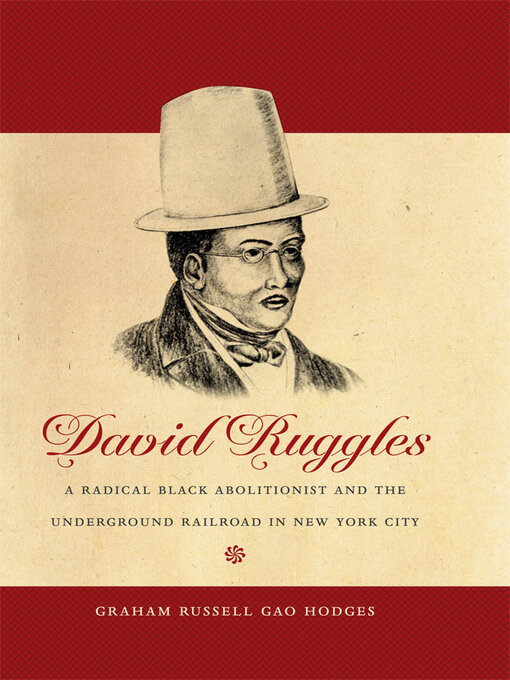- All Magazines
- Popular Magazines: Always Available
- Cooking and Food Magazines
- Craft Magazines
- News and Politics
- See all
-
Description
-
Details
Hodges's narrative places Ruggles in the fractious politics and society of New York, where he moved among the highest ranks of state leaders and spoke up for common black New Yorkers. His work on the Committee of Vigilance inspired many upstate New York and New England whites, who allied with him to form a network that became the Underground Railroad.
Hodges's portrait of David Ruggles establishes the abolitionist as an essential link between disparate groups—male and female, black and white, clerical and secular, elite and rank-and-file—recasting the history of antebellum abolitionism as a more integrated and cohesive movement than is often portrayed.

Kindle Book
- Release date: March 15, 2010
OverDrive Read
- ISBN: 9780807895795
- Release date: March 15, 2010
PDF ebook
- ISBN: 9798890868282
- File size: 8256 KB
- Release date: March 15, 2010
Formats
Kindle Book
OverDrive Read
PDF ebook
Kindle restrictions
Languages
English
